UK sends warships to shadow Russian naval task force
- Published
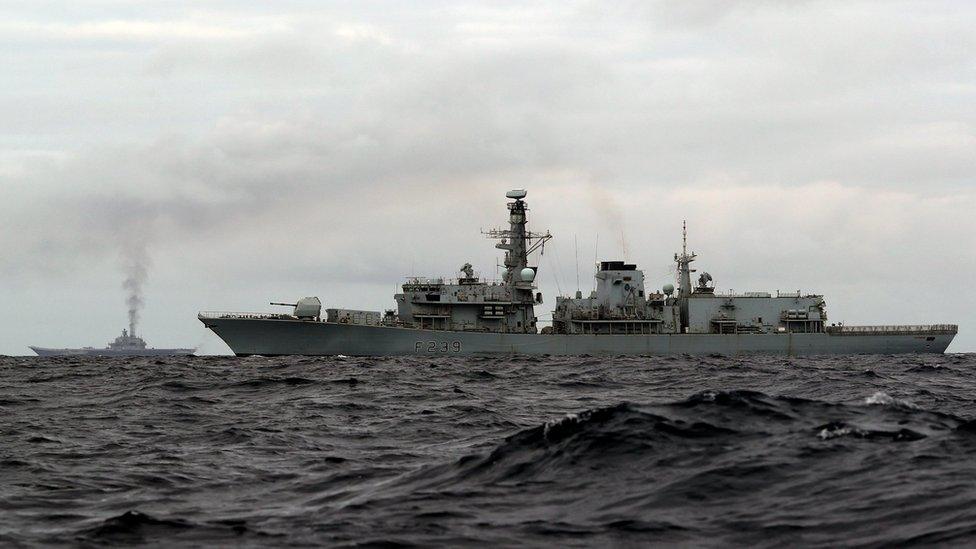
HMS Richmond is shadowing the Russian naval flotilla in the Norwegian Sea
Two British warships have been sent to shadow a Russian aircraft carrier and other Russian naval ships heading towards the UK.
The carrier Admiral Kuznetsov and its task force is sailing south from the Norwegian Sea on its way to Syria.
It is not clear if it will pass the British Isles via the English Channel or west of Ireland.
British Defence Secretary Michael Fallon said the ships would be "man-marked" every step of the way.
"We will be watching as part of our steadfast commitment to keep Britain safe," he said.
It comes amid heightened tension between Russia and Nato.
Russia's naval battle group: Power play or theatre?
Are we entering a new Cold War?
How Moscow's bombing campaign has paid off for Putin
Russia's top spin doctor in nuclear warning
Nato has accused Russia of provocative military manoeuvres, especially in the Baltic region. Russian warplanes have stepped up patrols near Nato countries' airspace.
The UK's Ministry of Defence said the destroyer HMS Duncan had sailed from Portsmouth to join HMS Richmond in escorting the group as it moves south.
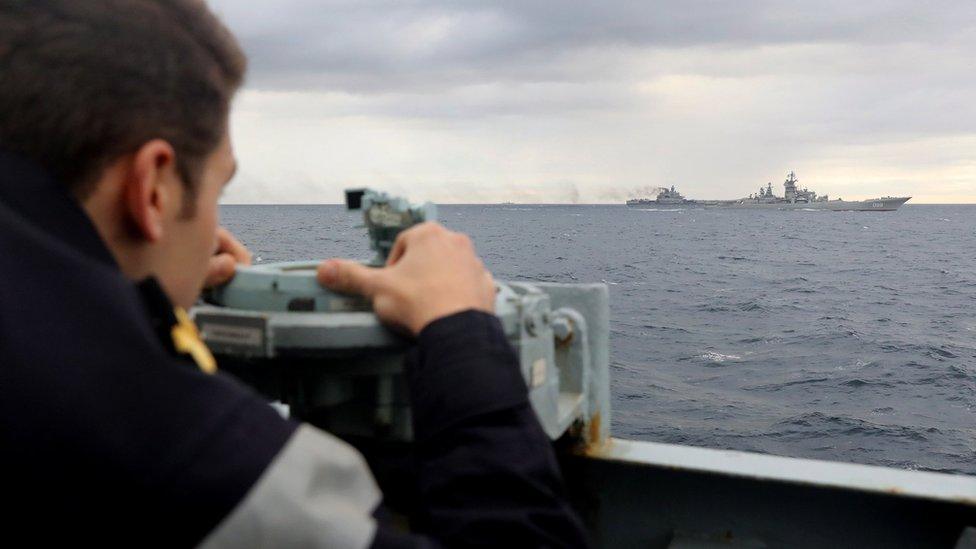
The British ships will escort the task force as it passes the UK on its way to Syria
It also said another British destroyer, HMS Dragon, was due to meet two Russian corvettes travelling north towards the UK from the direction of Portugal.
The Russian naval task force is the most powerful to sail in northern Europe since 2014, Russian media has reported.
The Admiral Kuznetsov is the only carrier in the Russian navy. It can carry more than 50 aircraft and its weapons systems include Granit anti-ship cruise missiles.
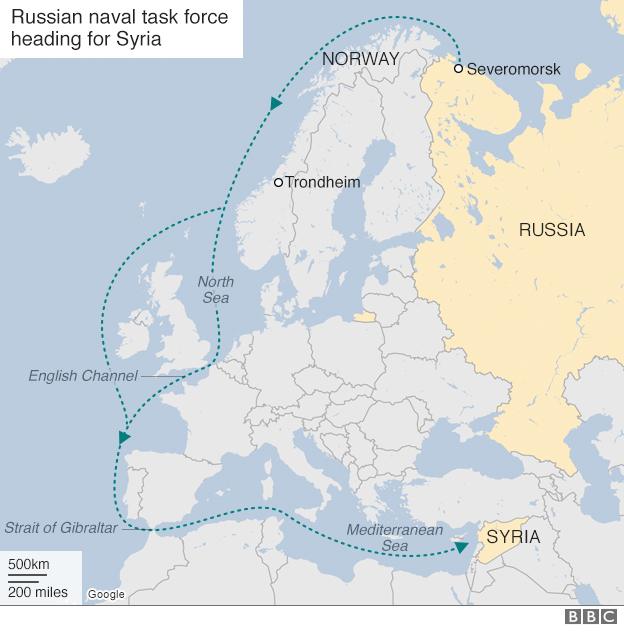
The other Russian surface ships in the group are the nuclear-powered battle cruiser Peter the Great, two large anti-submarine warships - the Severomorsk and Vice-Admiral Kulakov - and four support vessels.
Russian armed forces channel TV Zvezda said several submarines would probably move from the Atlantic to escort the flotilla.
The taskforce will strengthen Russia's naval presence off the Syrian coast. It already has about 10 ships there.
The UK Commander of Nato's Allied Maritime Command, Vice-Admiral Clive Johnstone, said Nato and allied nations routinely monitored "activities of interest" including the presence of Russian vessels close to national waters.
"This is in the interest of supporting our overall maritime awareness and safety of navigation in sea lanes of communication," he said.
- Published4 October 2016
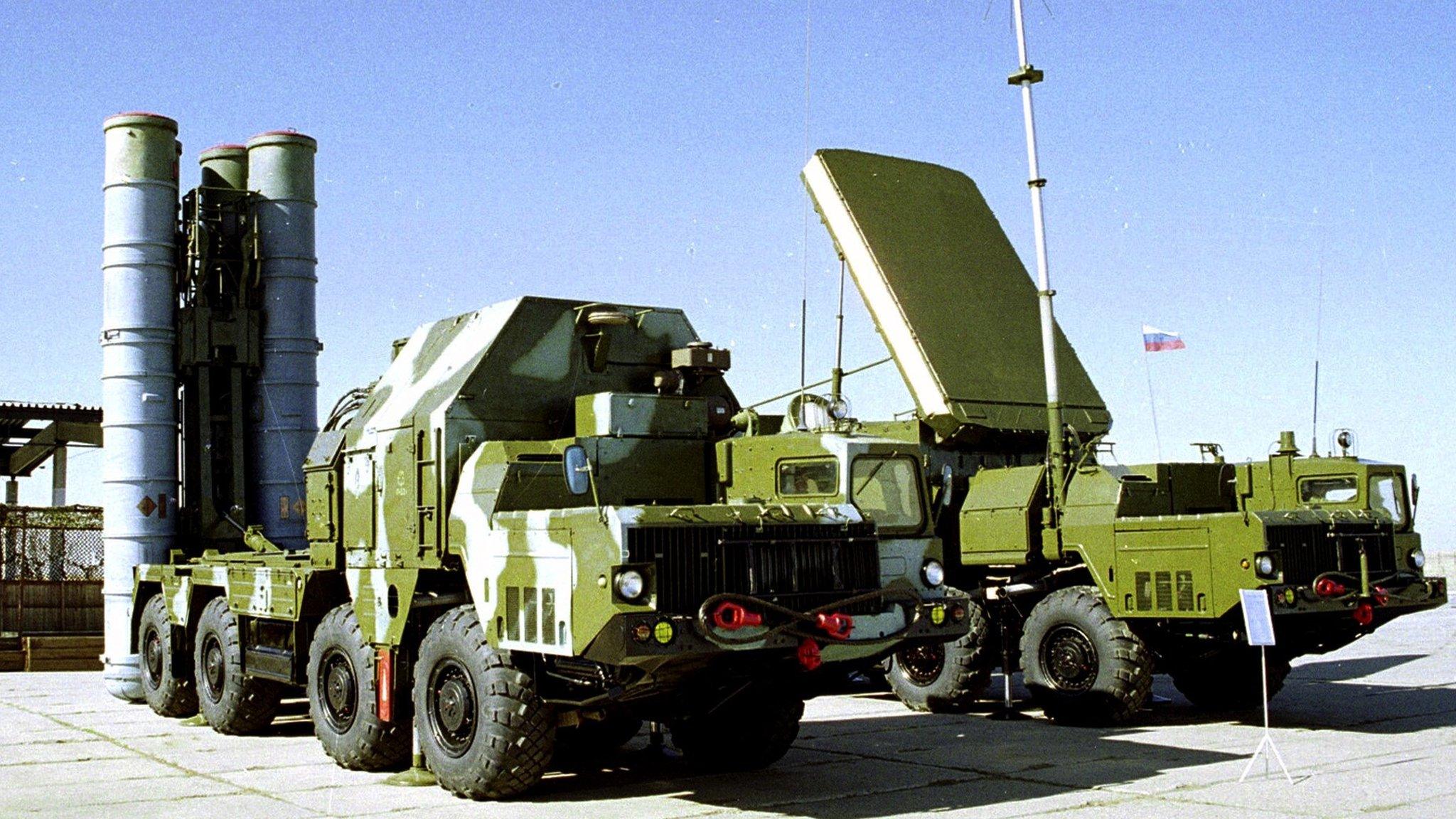
- Published10 October 2016
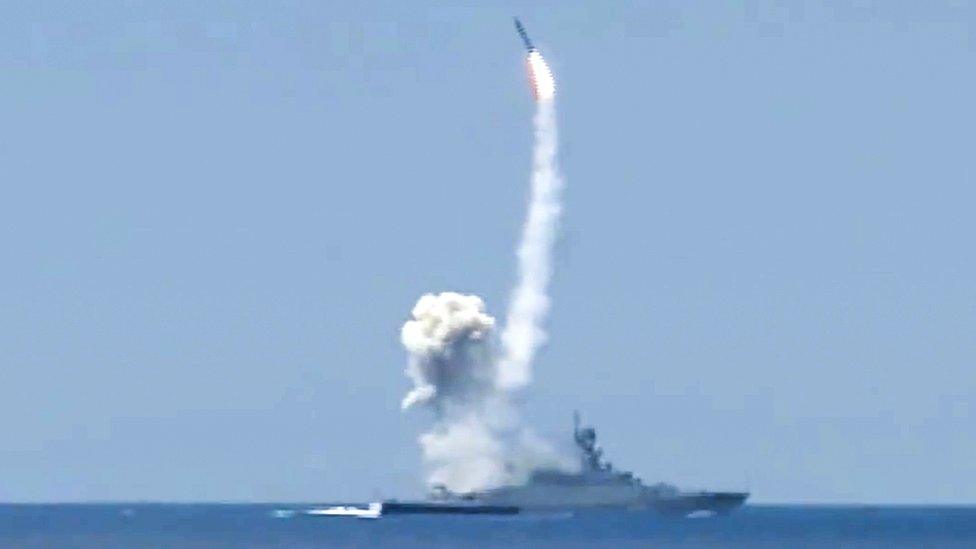
- Published9 October 2016
- Published11 August 2016